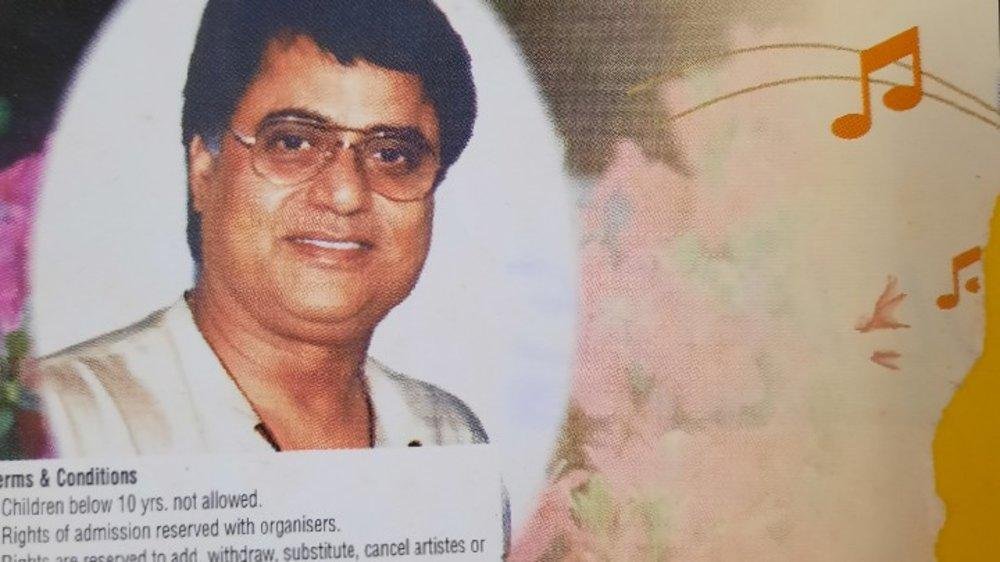Jagjit Singh is a name synonymous with soulful symphony of timeless ghazals. I heard Jagjit Singh for the first time from an album in my mother’s collection of ghazals. There were other ghazal singers, Shamshad Begum, Ghulam Ali, Farida Khanum with stirring voice weaving fine Urdu poetry. Ghazals were considered a serious genre of music with lyrics that had a deep meaning and often thought of as ‘heavy’, difficult to understand and decipher. The ghazals were for the connoisseurs who appreciated the particular type of music and not for those who enjoyed light music or say a Rajesh Khanna array of songs.
Jagjit Singh, brought up in Punjab and trained as a classical singer, sang for All India Radio Jalandhar in the beginning and came to Mumbai in 1965. He initially found space in ad jingles and later found his place in an unusual genre of music, ghazal. Over the years his ghazals came to epitomise emotions flowing through his silken voice, lyrics simple yet profound, that a film buff as well as Urdu poetry seeker could appreciate. His ghazals were a perfect antidote to nurse a broken heart, a perfect background to a beautiful relaxed evening spent solo, or a friendly gathering swooning over the modern makeover of ghazal, magical melody and easy to understand shayari.
On screen, his ghazals lent the right words to express love and longing in ‘Hothon se choo lo tum’ and ‘Tum itna jo muskura rahe ho’. Actors from Farooq Shaikh to Raj Babbar to Kulbhushan Kharbanda, the non-mainstream faces on the Indian screen, played the perfect poise for Jagjit’s soothing ghazals.
In 1967 Jagjit Singh met Chitra during an ad jingle recording. Chitra was a singer from Bengal, her unconventional style of singing, without any classical training, blended well with Jagjit’s deep inflection and the duo made a fairy-tale couple on mike and on stage. Their live performances and ghazal albums became highly popular. Every private music collection had one or two Jagjit Singh cassettes for sure. The duo also sang peppy songs, we had one album with Punjabi songs and hilarious lines and laughs in between. I loved the songs where one could literally feel the beautiful chemistry between the couple.
Jagjit Singh fondly came to be known as Ghazal King, who brought ghazals to the masses, at the same time, retaining its distinct classy appeal. Never once did he compromise with the essence of a ghazal to make it commercially fitting. No surprises that he sang playback only where the script demanded and didn’t choose to dilute his signature style of singing for mass commercial playback success. His non film albums remained highly popular where he worked with the best poets of the time to lesser known ones, lending his mesmerising voice to shayari and nazms that were easy to relate to.
Much later while studying in Pune, I saw an advertisement for a Jagjit Singh concert organised at Pune University open grounds, tickets costing Rs 100. My roommate was a huge fan of Jagjit Singh and I totally turned Marasim fan after listening to the albums with her. Meanwhile, we attended the concert that was organised more like a college fest and the mood he set was altogether different from what we had expected. He sang a medley of songs and ghazals keeping the audience in mind and ending the show with a little dance to his Punjabi number. It was an exhilarating experience to see a sea of youngsters in uproar at a ghazal concert!
Two years later, in Kolkata, I tried buying tickets for his concert. The concert and ticket sale was announced in the morning papers and all the tickets were sold by 11 am. I was disappointed, yet me and few friends, together we hovered around the stadium where the event was going on and sat at the footpath, listening to his trance like voice echoing from the loudspeaker facing outwards.
I attended another concert of his in Chennai during the Music Festival, with Chennai connoisseurs walking in in their crisp kurtas and silk sarees, pin drop silence and a complete other worldly experience.
In 2010, I was in UAE and a concert was announced. I desperately wanted to attend but children were not allowed. New to the city, I didn’t know too many people to leave my daughter alone for the evening and decided to skip. In 2011 Jagjit Singh passed away. With him, an era of music came to an end. Not attending that concert remains a regret forever.
Over the years I have listened to and appreciate some of his lesser known compositions as well. With age, ghazals seem to mature too. These lines define Jagjit Singh’s music for me:
Tumko dekha to ye khaya aaya,
Zindagi dhoop tum ghana saayaa.
This post is part of BlogChatter’s A2Z Blogging festival .https://www.theblogchatter.com/all of April where I’m reliving the beauty, simplicity and innocence of growing up in the 80s. You can read previous posts in the series here:
F Free Time-Fursat Ke Raat Din
G Gillu
